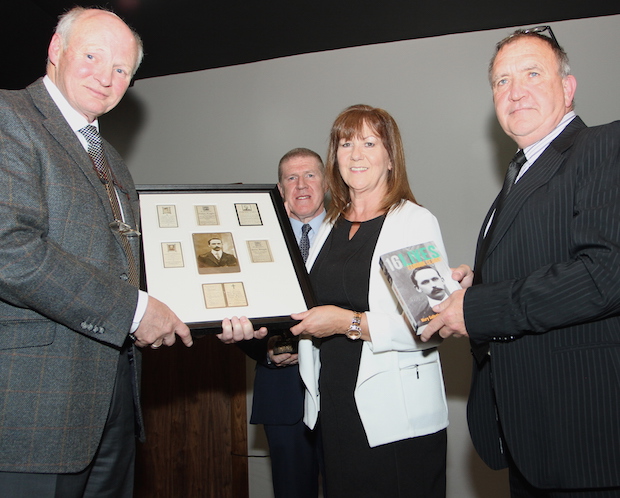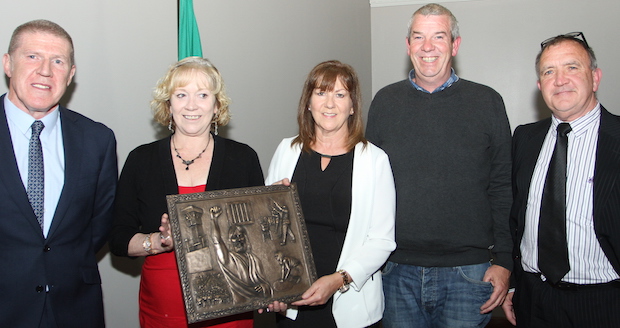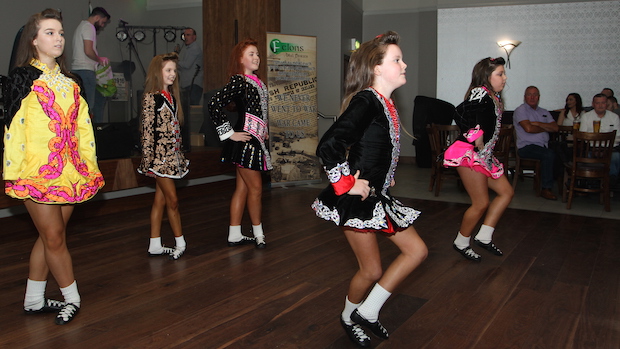12 October 2016
1916 leader Éamonn Ceannt’s grand-nephew joins Felons’ Club celebration in Belfast

● David Ceannt presents a framed picture of his grand-uncle, Éamonn Ceannt, to Rosie McCorley as JJ Bradley and Gerry Ó Scolláin of the Felons’ Association look on
THE constant work of the Felons’ Club committee in Belfast for republican ex-prisoners to improve the premises for its members and visitors was in the spotlight with the refurbished lounge being opened on a celebratory night last week attended by the grand-nephew of 1916 leader Éamonn Ceannt.
David Ceannt, grand-nephew of the Proclamation signatory, presented club committee member and ex-POW Rosie McCorley with a framed photograph of the revolutionary 1916 leader.
Memorial cards commemorating other republican icons such as Cathal Brugha and “The Four Martyrs” (Joe McKelvey, Liam Mellows, Dick Barrett and Rory O’Connor), executed by Free Staters on 8 December 1922, were framed with the Ceannt photo.
David Ceannt told guests that he wanted to donate something to the club as a thanks to the committee’s gesture this year in making all the families of the executed 1916 leaders honorary members of the Felons’ Association.
● A special presentation was made to Eibhlin and Dee Glenholmes, whose father Dickie was a long-standing member of the Felons’ Association
In his introduction, Felons’ Secretary Gerry Ó Scolláin welcomed David Ceannt, his wife Nuala and daughter Clíodhna.
In a tribute to men and women of 1916, he said:
“We cannot truly know for sure what was in the hearts and in the minds of those who marched out in Dublin one hundred years ago. What we can be fairly certain of, though, is that few of those who daringly and selflessly committed themselves to taking part in that seminal enterprise in our history did not do so with the intention of setting up an Ireland of homelessness and inequality, an Ireland of greed and exploitation, an Ireland that forces the flower of its youth to emigrate.
“They did not march out to fight to establish a ‘Republic’ of 26 counties or an Ireland split into two austere, conservative regimes where republicans were suppressed, imprisoned and murdered.
“When partition was imposed, republicans – North and South but particularly in the North – were faced with the choice of either accepting subservience or fighting back; and of those who fought back, many are represented by what Cumann na Meirleach Poblachtach Éireannach stands for.
“It is the republicanism of Pearse, Connolly and Clarke – the republicanism of Éamonn Ceannt.”
● Dancers from the Flanagan School of Dancing perform on the night
Follow us on Facebook
An Phoblacht on Twitter
Uncomfortable Conversations

An initiative for dialogue
for reconciliation
— — — — — — —
Contributions from key figures in the churches, academia and wider civic society as well as senior republican figures







